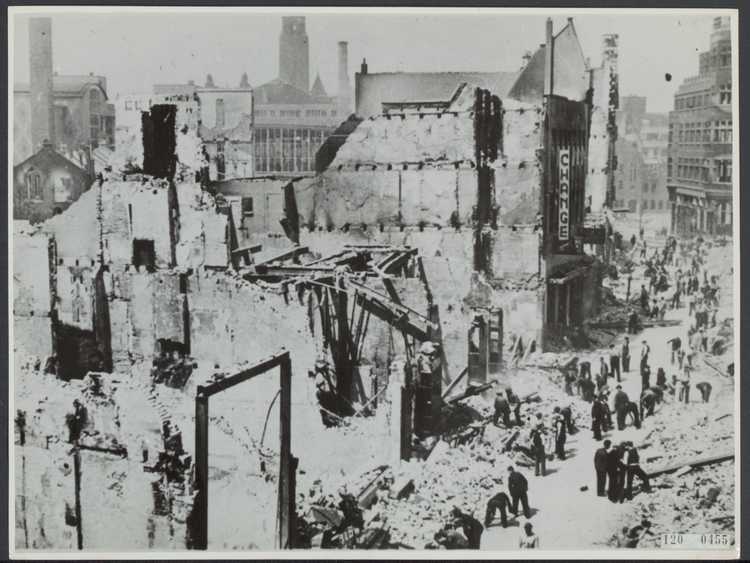As commander, you had to be prepared to give the corder for a bombingattack, even though you knew there would be losses, and innocent civilians might die. This is difficult for any commander. An American airman later said:
“You give your orders for a particular purpose, even though you know that some will not return. The losses are the sacrifice one has to suffer to ensure the necessary damage can be made to ensure the end of the war”.
With that in mind……The invasion of France, the Longest Day, they knew beforehand that a lot would not be coming back. They could have said that they weren’t going to do anything but then we wouldn’t be where we are today. Were women and children bombed? No, the pilots didn’t see women and children. They saw England and what had happened there. They knew very well what was going on and they were literally prepared to go to hell and back for Bomber Harris. They didn’t have an issue with these citizens, they had targets. You have to realize, they knew that it could happen but they did not go out with the intention of bombing women and children. They went out to bomb the German industry. But at that time a lot of people lived in and around every industrial city. You couldn’t dwell on it. Your life would have been very restricted if you were to think about this all the time. They had a kind of built in protection mechanism.
They didn’t bomb civilian targets, they bombed military targets. Their targets were in the cities. A legitimate target in war is the war industry. For example the railways, roads and ports. These are all legitimate military targets and they were attacked. That people often lived close to these military targets (often the factory workers) and that the bombs fell here too, is another story. There wasn’t any other option at the time.
The bombing at Dresden was in part at the request of the Russians but they forget to mention this. Dresden was not an 'open' city, there were air defenses. Where there's smoke, there's fire. Dresden was bombed by the British and the Americans, partly at the request of the Russians who were fighting there. However after the war, the Russians constantly tried to deny this because they didn’t like the English. This become a political affair. They did exactly the same on the other side! What about the devastation in the City of London. We are talking about 1940. That area of the city was according to neutral reports completely flattened. The English were only allowed to bomb Germany after the bombing of Rotterdam.
